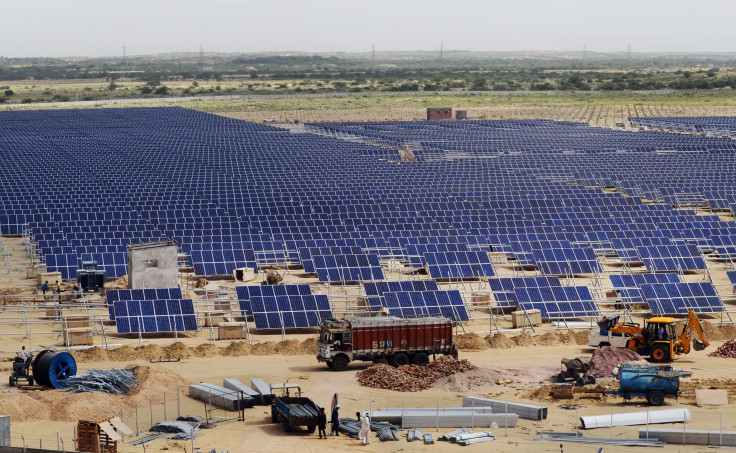World Bank, India Sign $1 Billion Solar Power Deal

The World Bank Group and India signed an agreement Thursday for over $1 billion that the world’s second-most populous country will receive to develop its solar power generation. India, which currently has just over 7GW of installed solar capacity, has announced ambitious plans to increase it to 100GW by 2022.
With its climate, the South Asian country has the potential to generate a large amount of solar power, and has increased its installed capacity significantly in the recent years, up from just 20MW in 2011. On its website, the World Bank said the money — its largest financing for solar projects in any country till date — will “support India’s ambitious initiatives to expand solar through investments in solar generation. The World Bank-supported projects under preparation include solar rooftop technology, infrastructure for solar parks, bringing innovative solar and hybrid technologies to market, and transmission lines for solar-rich states.”
More specifically, $625 million will go toward the Grid Connected Rooftop Solar Program. “The project will finance the installation of at least 400 MW of solar Photovoltaic installations that will provide clean, renewable energy, and reduce greenhouse gas emissions by displacing thermal generation,” according to the World Bank. Another $200 million will be used to develop a Shared Infrastructure for Solar Parks Project under a public-private partnership model.
India is the world’s biggest borrower from the World Bank, borrowing $4.8 billion between 2015 and 2016 alone. The total lending from the World Bank’s various arms to Asia’s third-largest economy is close to $32 billion.
India also leads the International Solar Alliance, a group of 121 countries, which also signed an agreement with the World Bank Thursday “with the goal of mobilizing $1 trillion in investments by 2030.”
The agreements were signed in New Delhi in the presence of World Bank Group President Jim Yong Kim, who is on a two-day visit to India. “India’s plans to virtually triple the share of renewable energy by 2030 will both transform the country’s energy supply and have far-reaching global implications in the fight against climate change,” he said.
In December 2014, German development bank KFW had announced a 1 billion euro ($1.11 billion) loan to develop power transmission lines in India that would help feed electricity generated from renewable sources into the national public grid.
© Copyright IBTimes 2024. All rights reserved.





















